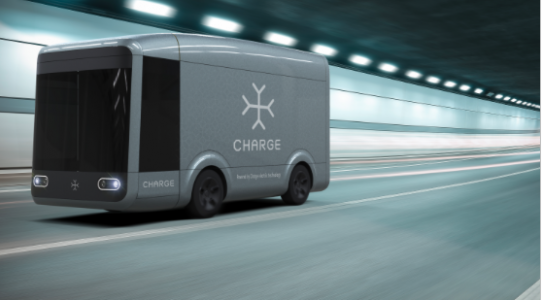Charge: the Self-Drive Delivery Van that Can be Built in Four Hours - Dispatch Weekly
November 4, 2016 - Reading time: 5 minutes

Charge is a self-driving electric delivery van showcased at the Wired 2016 conference in London on 3-4 November that could be on UK roads once self-drive legislation is in place.
Charge Vehicles Can be Assembled in 4 Hours by 1 Person
The firm claims that 1 person can assemble the autonomous vehicle in 4 hours.
Once the legislation runs in the company’s favor they will be “autonomous-ready”.
Denis Sverdlov, chief executive of Charge, the automotive technology firm behind the truck said:
“We are removing all the barriers to entry for electric vehicles by pricing them in line with conventional trucks, giving every fleet manager, trades-person or company, no matter how big or small, the opportunity to change the way they transport goods and make our towns and cities better places to live in.”
Facts about Charge Vans

The vans are software based smart trucks that wirelessly update and improve the hardware.
Each truck is 2 to 26 tonnes, including lightweight components allowing a competitive payload capacity.
The vehicle uses half the fuel consumption of conventional vehicles.
Unique Selling Points of the Vehicle
Since the vehicle is made of an ultra-lightweight material, this makes it easy to assemble.
Also the electronic output ensures zero emissions for the first 100 miles of a journey.
Sverdlov said:
“We find trucks today totally unacceptable. Loud, polluting and unfriendly.”
He added, “We are making trucks the way they should be-affordable, elegant, quiet, clean and safe.”
The UK Government Wants to See Self-Drive Cars on the Roads by 2020
The UK government wants to see self-driving cars on the roads by 2020. Already companies are pushing forward for self-driving cars to be reality.
In the UK, KPMG estimates that self-driving cars will lead to 2,500 fewer deaths between 2014 and 2030.
Jaguar Land Rover has plans that will see more than 100 research vehicles to test autonomous and connected technology in the next four years.
Tesla also recently added hardware to their cars, allowing self-driving.
Facts about Charge, Self-Driving Vehicles

The company is a partner of the electric car racing competition, Formula E, creating AI-powered racing cars for the Roborace.
Once the UK government allows self-driving cars on the road, Charge is said to be primed and ready.
The company already has plans to open a factory in Oxford where 10 employees will put together 10,000 trucks per year.
Future of Self-Driving Vehicles: the Facts
Uber has invested in its automated driving research programme, raising over $10 billion from backers.
Tesla cars — including the Model S, Model X, and forthcoming Model 3, have announced that they will include $8,000 worth of cameras, sensors and computers. This is a precursor until cars can be totally autonomous.
Mark Fields, Ford’s CEO stated that the company plans to offer fully self-driving vehicles by 2021. This will involve cars with no steering wheel pedals.
Are you excited to see self-driving vehicles on the roads or do you think they are still too dangerous?

DW Staff
David Lintott is the Editor-in-Chief, leading our team of talented freelance journalists. He specializes in covering culture, sport, and society. Originally from the decaying seaside town of Eastbourne, he attributes his insightful world-weariness to his roots in this unique setting.




